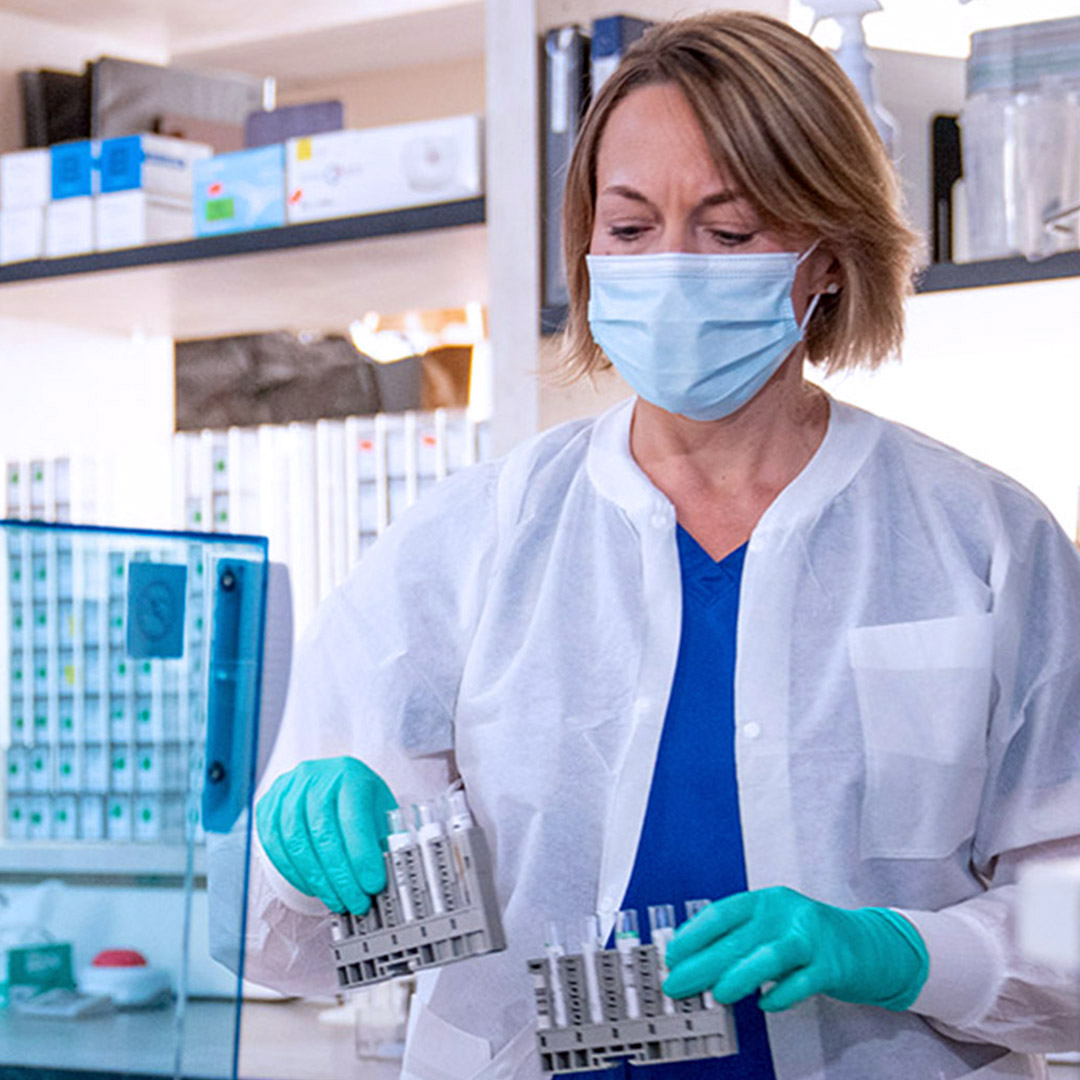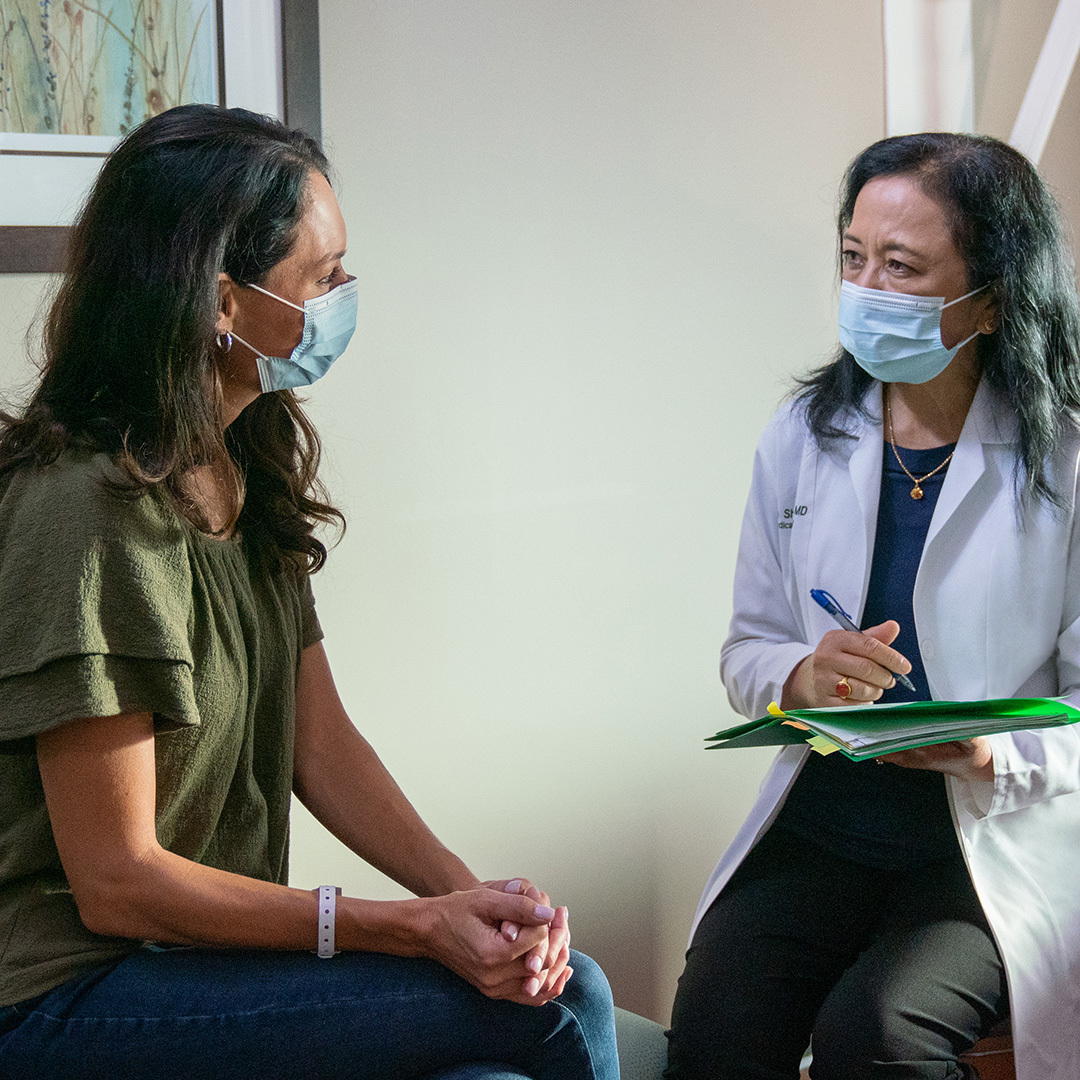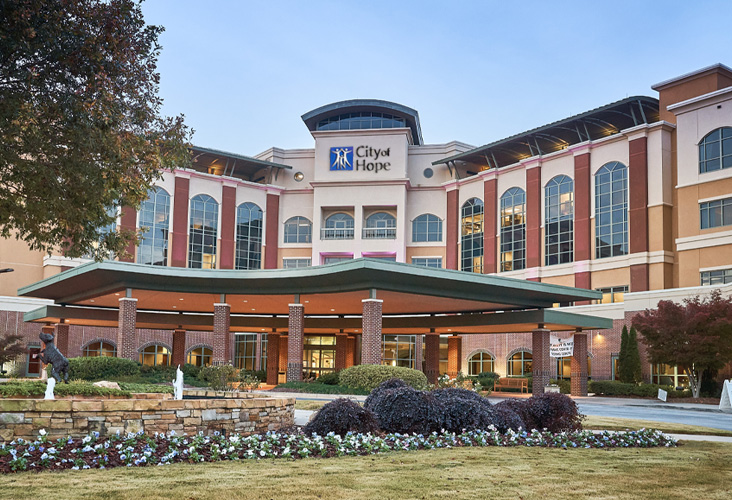

Cancer and its treatments often put a strain on a patient’s blood supply. Cancer may cause internal bleeding or blood-related illnesses, such as anemia. Surgery requires cutting through skin, organs and other tissue that results in blood loss.
At City of Hope, we understand that getting transfused blood or blood products to address these issues may not be an option for all patients.
More than 50 percent of Americans are concerned about the safety of blood, and one in every 34 patients suffers a delayed allergic reaction to blood transfusion which, in turn, may slow recovery. At City of Hope, we also recognize the rights of religious groups, such as Jehovah’s Witnesses, whose beliefs prohibit transfusions. And we understand the concerns of those who choose to avoid the risks of a transfusion or who have certain medical concerns, like allergies or a history of anaphylaxis.
That’s why we offer bloodless medicine options and blood management strategies for patients who choose to avoid transfusions of blood and other blood products during their cancer treatment.
Cancer Treatment Centers of America® (CTCA) is now City of Hope®, joining forces to expand patient access to personalized, comprehensive cancer care.
Our Bloodless Medicine and Surgery Program is designed to help patients preserve and fortify their own blood supply to help reduce the necessity of a transfusion or the need for other blood-based products. We do that in a variety of ways, by:
Reducing blood loss
We use advanced tools to reduce the among of blood lost during surgery, techniques to reclaim lost blood and pre- and post-operative planning to reduce the amount of blood needed for testing.
Increasing tissue oxygenation
Our blood management techniques help to increase the amount of oxygen the blood carries to tissue and organs and helps the body use oxygen more efficiently.
Managing anemia
Anemia is a common side effect of cancer. Nutritional support and supplements, such as iron and vitamin K, may help to treat anemia and improve a patients’ overall blood health.
Our Bloodless Medicine and Surgery Program uses advanced tools, techniques and strategic planning protocols before, during and after your cancer treatment to help reduce or eliminate the needs for a transfusion of blood or blood components, such as platelets or plasma. These efforts include:
Drugs used to promote blood help and limit blood loss include:
Epoetin alfa (Procrit®), darbepoetin alfa (Aranesp®): Drugs that stimulate the body to produce more red blood cells
Clotting factors: Injection, infusions and topical drugs to help stop blood loss and promote clotting
Immune globulins: Antibodies used by the immune system used to identify and neutralize diseases and viruses
Pegfilgrastim (Neulasta®), filgrastim (Neupogen®): Drugs designed to increase white blood cells production, which helps the body fight infection
Albumin: A protein made in the liver that promotes good blood flow and health
Equipment and procedures that may be used in the Bloodless Medicine and Surgery Program include:
Dialysis: The process of circulating blood through a filtering machine to be cleansed before it is infused back into the patient
Cell salvage or cell saver machines: Devices that recovers blood lost during surgery, filters out red blood cells that are infused back into the patient
Hemodilution: The process of removing the blood from a patient, replacing it with non-blood substances, such as saline, then infusing the blood back into the patient during or after surgery


While transfusions have been beneficial for millions of patients, they are not without risk. Avoiding a blood transfusion may help:
Improve outcomes: Research indicates that bloodless medicine patients have fewer post-operative strokes or heart attacks and, overall, have more positive outcomes from their treatment.
Reduce infections or reactions: Some patients may develop a fever after a transfusion. Others may have allergic reactions to the donated blood. And, in rare cases, transfused blood may contain viruses or bacteria or cause blood-borne illnesses.
Save time and money: Transfusions may increase the cost of cancer care and require longer hospital stays. And, in some cases, patients with rare blood types may have to wait for suitable donors or for their type of blood to be found.
At City of Hope, we encourage our new and existing patients to talk to their doctor or other members of their care team about the options and strategies to avoid or reduce the need for transfusions of blood or other blood-based products.
Whether you have questions about treatment, want to know more about City of Hope or would like to review more resources, contact your local Bloodless Medicine and Surgery team at one of the numbers below.

New patients: (855) 785-0034
Existing patients: (770) 830-2822
Physician Referral: (770) 400-6568
Physician Referral Fax: (770) 400-6900